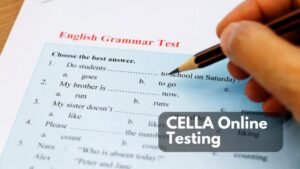About 18 and 15 million students enrolled in U.S. colleges and high schools in 2023, respectively. At the same time, CBS News reports that scores have been falling for six consecutive years, explaining why students are concerned about how to get an A. It turned out that nearly half the American high schools are inflating grades and not showing their true students’ scores. In this blog, our experts explain how to get an A without relying on inflated scores. You may also need to pay for exam help, a service we gladly offer students struggling with course concepts or time pressures.
Set Clear Goals on How to Get an A Using the SMART Technique
How to get an A begins with a learner acknowledging their current knowledge of the course topics. Then, they must set clear goals that address conceptual gaps and accommodate urgent academic needs. The SMART is an acronym for:
- Specific: The goals should be unambiguous. For example, when studying for a nursing exam, a learner-specific goal can be mastering key concepts, memorizing drug names, improving clinical skills, or taking a particular number of practice exams. A learner can also seek peer help and review several lecture videos.
- Measurable: when planning how to get an A, learners must be able to measure their progress towards accomplishing goals. For example, when studying for math, a measurable objective may include solving 20 math practice problems or increasing study hours from 5 to 10 per week. If a learner scores 50% on a mid-term test, a measurable goal can be to increase the percentage by 10 or 20.
- Achievable: Learners looking for A+ grades must set realistic goals within their reach. The plan must also be possible to maintain consistency. For example, a learner can set a structured study schedule and follow it without procrastinating or continuously evaluating areas of strength.
- Relevant: Brilliant students set goals that align with their overall objectives. They focus on the outcome instead of a few distractive tasks that result in procrastination. A comprehensive schedule should address what and when to study based on the learner’s current knowledge gap.
- Timebound: Each goal must have a target date. Deadlines allow students to prioritize tasks, be accountable, measure progress, and maintain focus.
Need to Know How to Get an A? Invest in Quality Course Materials
The exam content from the direct course materials varies depending on the test’s structure and purpose. However, 80% of exam questions are likely to be core materials. Getting a perfect grade entails understanding the subject matter profoundly using the following:
- Lecture Notes: These materials include key takeaways, concepts, and primary ideas discussed during contact hours. They also comprise visuals, diagrams, questions, and personal insights that help learners engage more deeply with core concepts.
- Review Sheets: Summary sheets are organized documents that break down complex course concepts into manageable sections. A course summary sheet is typically one to two pages long, presenting the primary content covered in the course for easy scanning. When studying, learners can use review sheets for a quick reference of the flow of ideas and understanding of relationships between interdisciplinary concepts.
- Short Assignments and Past Papers: Use the professor’s assignment to solidify your understanding of the core topics. Questions at the end of the course topic are excellent for enhancing topical performance. But for exam preparation, use test papers or past papers that simulate the exam conditions.
- Online Forums, Video Resources, and Discussion Groups: Join online forums comprising like-minded students and course peers. Vital online groups include subreddits and free Google forums. Review video resources the members share and get additional details from YouTube.
Know the Instructors and Attend All Classes
Most U.S. colleges require students to attend at least 80% of their total contact hours. Regardless of their performance, learners who miss more than 25% of their classes may be barred from taking the final exam, translating to an instant failure. Attending all classes allows learners to stay up-to-date with their course materials and be accountable for their assignments.
For students who want to know how to get an A, consistent class attendance is a golden chance to benchmark from peers, know and develop an excellent rapport with their tutors, and seek immediate feedback on their academic weak points. According to research by Taylor & Francis Online, learners who miss 80% of their classes risk getting DFW (grades D, F, or Withdrawal.) Class attendance also has long-term effects on academic integrity since learners must meet particular contact hours to graduate in some colleges.
Take Practice Timed Tests
How to get an A is a question of a learner being able to maintain all factors of recall, which include absolute accuracy and efficiency when answering exam questions. Abbot’s Psychological Analysis of Recall Factors contends that taking timed practice tests, especially after learning a concept, is the cornerstone of memory proficiency. According to Abbot, consistent timed tests help learners familiarize themselves with the exam’s format, question types, testing environment, and time management. Learners targeting an A use timed tests to evaluate their current level of preparation and address knowledge gaps to minimize “exam surprises.”
Schedule the practice tests one to two weeks before the exam date. This preparation should go toward assessing a learner’s readiness for a test. Also, take timed practice tests throughout the course period, once or twice a month. A+ students use these practice tests to track their understanding of the core topics.
Learn How to Get an A By Delegating Your Exams
Being organized, using the SMART Technique, investing in quality materials, attending all classes, and taking timed practice are vital parts of how to get an A. However, some students still need help from top experts to benchmark how to ace tests or delegate high-stakes exams that prove challenging. Work with our top exam experts to enhance your chances of scoring an A+ grade and open doors to desired academic success.



